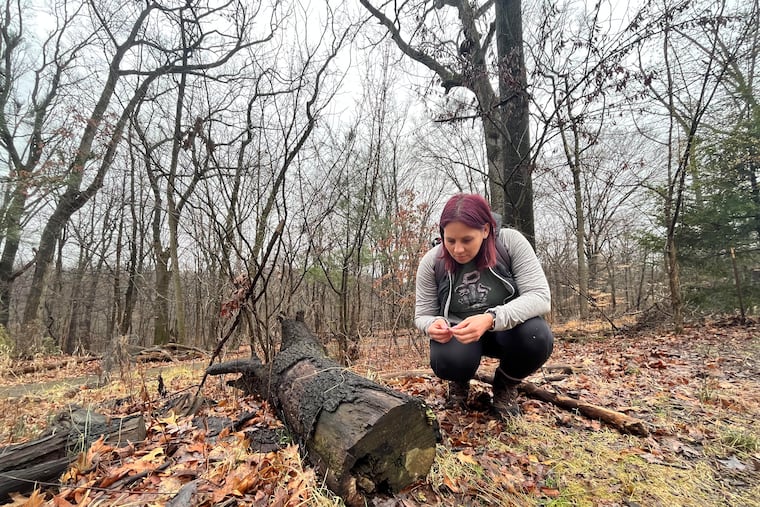Don’t fear the wild mushroom: Pennsylvania woman wants to demystify mycology
Barbora Batokova's new book, "Hunting Mushrooms: How to Safely Identify, Forage and Cook Wild Fungi" comes out in April.

PITTSBURGH — When it comes to wild mushroom foraging, Barbora Batokova has a simple rule for beginners: learn what can kill you, then go have fun.
Batokova, 38, works in tech and software but a childhood passion has nearly evolved into a second career in Pennsylvania. She’s president of the Western Pennsylvania Mushroom Club, has a website and 126,000-plus followers on her @fungiwoman Instagram account, and hosts guided walks for budding mycologists.
Next month, she’s releasing her first book: “Hunting Mushrooms: How to Safely Identify, Forage and Cook Wild Fungi.”
Hunting and photographing mushrooms in Pittsburgh’s Frick Park in 2017 cured a bit of homesickness, Batokova said, and she hasn’t looked back. Her family had a summer home in South Bohemia, Czech Republic and spent many days foraging for chanterelles, boletes, and blushers.
“I was looking for a way to get grounded again and find some purpose. That’s when I started to come here,” she said in the park on a recent damp Saturday. “This is what my family used to do during the summer in the country.”
Pennsylvania and the Czech Republic have similar climates, Batokova said, and both have an abundance of mushrooms and fungi, too. In Frick Park, she left the trail every few feet to point out the mycology.
“So this is a violet-toothed polypore, not to be confused with turkey tails, which are said to have medicinal benefits,” she said, holding the fungus in her hand.
The polypores aren’t edible, she said, because they’re too tough but there’s plenty of edible mushrooms growing in Pennsylvania, including chanterelles, chicken of the woods, and honey mushrooms.
“In the Czech Republic, foraging and eating mushrooms are part of our tradition. We’re not scared of them,” she said. “But you know, here in the States, it’s quite the opposite.”
Czechs, Batokova wrote in her book, forage 60 million pounds of mushrooms, yearly.
A small number of the world’s mushroom species can make you sick, she noted, and the number of truly dangerous mushrooms, like the death cap and funeral bell, is smaller. Some toxic mushrooms can resemble edibles to the untrained eye, however, and no one should eat one if they can’t identify it, Batokova said.
“There’s an edibility spectrum to mushrooms,” she said.
Batokova’s book delves into all aspects of safe mushroom identification, along with tips for picking and preserving them. The book also includes 16 recipes, one of them her grandmother’s yellowfoot chanterelle goulash.
With Pennsylvania so heavily wooded, Batokova said, it makes for an excellent state to forage in. She often travels to Cook Forest in the Northwestern region of the state, and even the Poconos.
“Obviously, the old-growth forest is the best place to be,” she said.
Batokova first came to the United States in 2001 as an exchange student and attended Chatham University and Carnegie Mellon University in Pittsburgh. She grew up in the Czech town of Tabor and returns every year for Christmas and again in the summer to visit the beloved country home in rural Vícemil.
“Summer is a must,” she said, “to go foraging.”
In Pennsylvania, she tries to recreate the magic of her childhood walks.
“Once you go on a walk with me, you start seeing that mushrooms are everywhere and it changes the way you observe the woods,” she said. “But I still call it hunting, because you really have to search for the ones you want.”